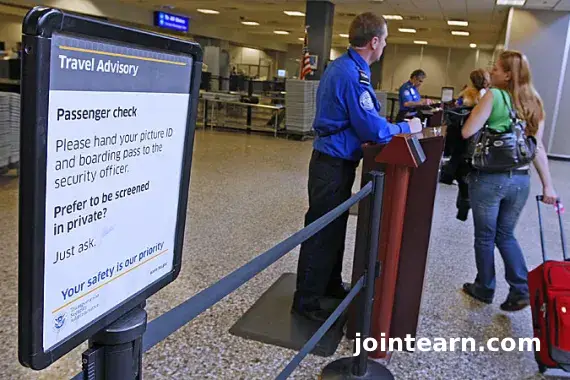
A Virginia Transportation Security Administration (TSA) officer has filed a federal lawsuit accusing the US Department of Homeland Security (DHS) of sex discrimination over a Trump administration policy that prohibits transgender officers from conducting security pat-downs at airports. The case marks a significant legal challenge against new federal restrictions critics say are rooted in gender identity bias and violate civil rights protections.
Transgender TSA Officers Banned from Performing Pat-Downs
The Transportation Security Administration, operating under DHS, introduced the controversial policy in February 2025. It was designed to align with President Donald Trump’s executive order reaffirming a binary definition of sex as strictly “male” and “female.” Internal documents obtained by the Associated Press reveal that under the new policy, transgender TSA officers are prohibited from performing or demonstrating pat-down procedures during security screenings or training sessions.
The documents state:
“Transgender officers will no longer engage in pat-down duties, which are conducted based on both the traveler’s and officer’s biological sex. In addition, transgender officers will no longer serve as required witnesses during private pat-down screenings.”
Until this change, TSA employees were permitted to perform job duties consistent with their gender identity under a 2021 management directive. The new rule rescinded that guidance to comply with Trump’s January 20, 2025, executive order.
Virginia Officer Files Federal Discrimination Lawsuit
Danielle Mittereder, a transgender security officer stationed at Dulles International Airport, filed her lawsuit on Friday, claiming that the ban violates federal civil rights law by limiting her job duties solely because of her gender identity. The lawsuit also challenges TSA’s new rule prohibiting her from using restrooms that align with her gender identity within TSA-controlled facilities.
“Solely because she is transgender, TSA now prohibits Plaintiff from conducting core functions of her job, impedes her advancement to higher-level positions and specialized certifications, and subjects her identity to unwanted scrutiny each workday,” the complaint alleges.
Mittereder’s attorney, Jonathan Puth, described the rule as “terribly demeaning and 100 percent illegal,” arguing that it undermines equal employment rights protected under Title VII of the Civil Rights Act.
TSA and DHS Defend Policy
While TSA spokesperson Russell Read declined to comment on the ongoing litigation, he confirmed that the policy directs that male officers conduct pat-downs on male passengers and female officers on female passengers to maintain what DHS describes as “traveler comfort and operational efficiency.”
A DHS spokesperson, Tricia McLaughlin, defended the policy in a statement, arguing:
“Does the AP want female travelers to be subjected to pat-downs by male TSA officers? Prioritizing mental delusion over the comfort and safety of American travelers is fundamentally dangerous.”
However, civil rights advocates contend that the policy promotes gender-based discrimination rather than safety.
Broader Pattern of Workplace Discrimination
The lawsuit comes amid a wave of complaints from transgender federal employees during Trump’s second term, following several executive actions rolling back LGBTQ+ protections. Kai Regan, a former TSA officer in Las Vegas, told the AP that he retired early in 2025 because of fear of retaliation under the new policy.
“It made me feel inadequate at my job, not because I can’t do it, but because they put that label on me,” Regan said.
Skye Perryman, CEO of Democracy Forward, a nonprofit legal advocacy group, called the policy “arbitrary and discriminatory,” emphasizing that no evidence suggests transgender officers are unfit to perform security screenings.
Security and Operational Impact
Experts say the TSA’s policy could strain airport operations already hampered by the ongoing federal government shutdown and staffing shortages. Everett Kelley, president of the American Federation of Government Employees (AFGE), warned that restricting transgender officers from performing core duties could slow down screening processes and worsen traveler delays.
“This policy does nothing to improve airport security,” Kelley said. “In fact, it may increase wait times since there will be fewer officers available to conduct pat-downs.”
Legal and Cultural Implications
Legal analysts note that this case could have far-reaching implications for workplace protections under federal anti-discrimination law. Courts have previously ruled that discrimination based on gender identity is a form of sex discrimination under Title VII, as affirmed by the Supreme Court’s 2020 decision in Bostock v. Clayton County.
If successful, Mittereder’s lawsuit could set a precedent for restoring workplace rights for transgender federal employees affected by the Trump administration’s executive actions.
As the legal battle unfolds, advocates stress that the issue goes beyond security protocol—it reflects a broader fight for equality, dignity, and inclusion for LGBTQ+ Americans working in public service.


Leave a Reply